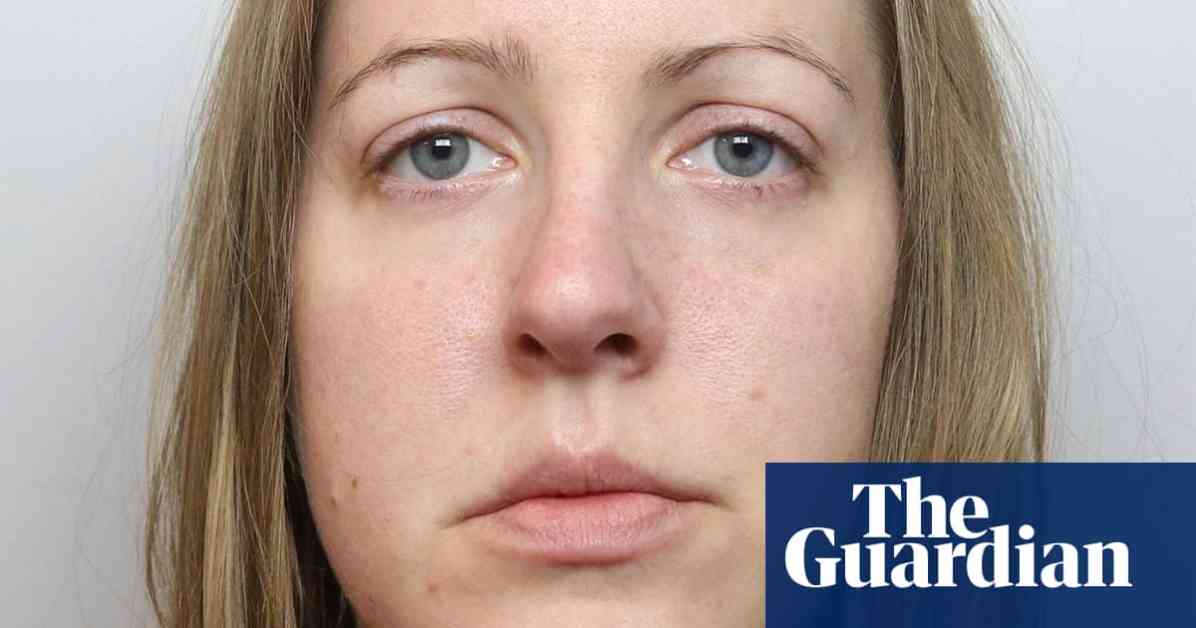CPS Acknowledges Incorrect Evidence in First Lucy Letby Trial
In a shocking turn of events, the Crown Prosecution Service has admitted that the evidence presented in the first trial of Lucy Letby, the nurse convicted of murdering seven babies and attempting to kill six others, was incorrect. Letby, who worked at the Countess of Chester hospital in north-west England, is now serving 14 whole-life sentences, making her the worst child serial killer in British history.
During a retrial at Manchester Crown Court last month, it was revealed that the door-swipe data, which showed which staff members were entering and exiting the baby unit where Letby worked, had been mislabelled in the initial trial. This discrepancy was related to one door in the neonatal intensive care unit and had a significant impact on the prosecution’s case.
Nick Johnson KC, the prosecutor in the retrial, brought attention to the errors in the door-swipe data. He explained to the court that the data had been corrected for the retrial, ensuring that accurate information was presented to the jury. This revelation has raised questions about the reliability of the evidence presented in the first trial and has sparked concerns about potential timing errors that may have affected the outcome.
MP Calls for Clarity on Timing Errors in First Trial
In response to the revelations about the incorrect evidence in the first trial, Conservative MP David Davis has written to Sarah Hammond, the chief crown prosecutor of the Mersey-Cheshire Crown Prosecution Service. In his letter, Davis urged Hammond to “urgently make clear” what timing errors were made during the initial trial and how they impacted the prosecution’s case against Letby.
Davis emphasized the importance of the door-swipe data in establishing the whereabouts of the nurses and doctors in the intensive care unit at the time of the incident. He stressed that this information was crucial to the prosecution’s case and called on the CPS to clarify whether similar errors occurred in other aspects of the evidence presented in the first trial.
The discrepancies in the door-swipe data came to light during the retrial, where it was revealed that the nurse assigned to Baby K had not left the intensive care unit as previously stated. The corrected data showed that the nurse had in fact returned at the crucial moment when Letby was discovered standing over the baby, who was in distress.
Implications of Incorrect Evidence
The revelation of the incorrect evidence in the first trial raises serious concerns about the reliability of the prosecution’s case against Letby. The fact that crucial data was mislabelled and potentially misinterpreted highlights the need for thorough scrutiny of all evidence presented in criminal trials.
The errors in the door-swipe data could have had a significant impact on the jury’s perception of Letby’s actions and intentions. The inaccurate information may have led to a false narrative being presented to the court, ultimately influencing the outcome of the trial.
The implications of the incorrect evidence go beyond the individual case of Lucy Letby. They raise questions about the broader implications for the criminal justice system and the need for greater transparency and accountability in the presentation of evidence in court.
Public Inquiry and Accountability
In light of the revelations about the incorrect evidence in the first trial, a public inquiry led by Lady Justice Kathryn Thirlwall is set to begin in September. The inquiry will investigate how Letby was able to continue working with babies despite concerns raised by senior doctors about her involvement in suspicious incidents.
The public inquiry will examine the systemic failures that allowed Letby to evade detection and continue her alleged crimes unchecked. It will also seek to identify any shortcomings in the oversight and regulation of healthcare professionals working in sensitive and vulnerable environments.
The findings of the public inquiry are expected to have far-reaching implications for the healthcare sector and the criminal justice system as a whole. The inquiry will shine a light on the need for greater accountability and transparency in the monitoring and supervision of healthcare professionals to prevent similar tragedies from occurring in the future.
As the investigation unfolds, it is crucial that all stakeholders involved in the case of Lucy Letby cooperate fully with the inquiry and provide any relevant information or evidence to ensure a comprehensive and thorough examination of the circumstances surrounding her alleged crimes.
Overall, the admission of incorrect evidence in the first trial of Lucy Letby has raised serious questions about the integrity and reliability of the criminal justice system. It serves as a stark reminder of the importance of upholding the highest standards of evidence presentation and ensuring that all parties involved in a trial receive a fair and just hearing.












